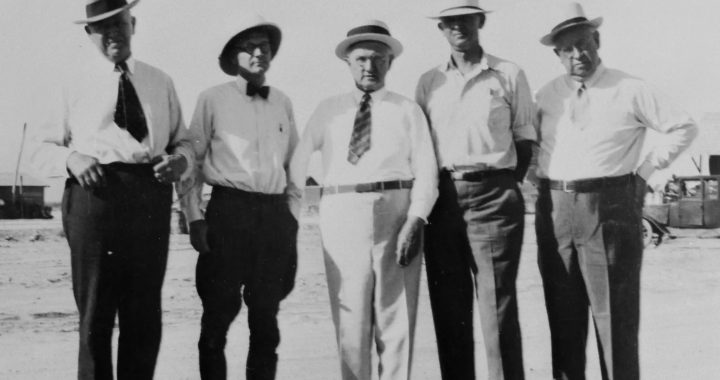March 8, 2016
When James Madison discussed the relationship between corporations and government, he sounded as if he were knocking on doors for Bernie Sanders. “The stockjobbers,” he wrote, “will become the pretorian band of the Government, at once its tool and its tyrant.” But stop right there. You might recognize Madison’s worry about corporations being government’s “tyrant,” but “its tool”?
In Madison’s day, legislatures chartered corporations through special acts, one by one, to channel private money into public projects. Alexander Hamilton, the corporation’s champion, saw it as a vessel for public policy, the consequences of which Madison feared as much as public corruption.
I thought of this history as I read Sally Denton’s new book, “The Profiteers,” a history of the Bechtel Corporation, one of the world’s largest construction companies. She targets Bechtel’s decades of extraordinary influence in Washington, detailing how the company has thrived on and perhaps even set the terms of the relationship. But her account left me thinking: Hasn’t the federal government benefited as well?
Denton rolls ahead with all the energy of the company’s founder, Warren Bechtel. Born in 1872, he worked his way from a farm in Illinois to a construction firm in California, “a natural engineer,” as one boss said. In 1906, he “was ready to strike out on his own,” Denton writes. He built railroads, pipelines, highways and finally the Hoover Dam.
“The Profiteers” shows how the dam set a pattern. Warren Bechtel made alliances with other businesses and federal officials, and obtained the contract for his consortium in 1931, through the influence of a former government insider in his employ. Denton, the author of several books of American history and investigative reporting, uses the term “revolving door” more than once to describe Bechtel’s personnel exchanges with Washington. She concedes that the Hoover Dam may have been “a marvel of design, engineering, architecture and construction,” but she highlights how “the safety violations and labor unrest that characterized Hoover Dam’s construction site would become synonymous with Bechtel” over time.
Warren Bechtel’s mysterious death in Moscow in 1933, from an apparent insulin overdose, ignites a theme of political maneuvering and international intrigue. The corporation went global after World War II, seeking contracts in the Soviet Union, Indonesia, Qaddafi’s Libya. It developed an expertise in energy, erecting refineries, nuclear power plants, even an entire city in Saudi Arabia. It adhered to the Arab boycott of Israel. It cooperated with the C.I.A.
But who or what is Bechtel? How do we separate the corporate person from the corporation’s people? What of Bechtel’s society of managers, technicians and workers, its internal turf wars, its procedural habits? Denton says little about Bechtel’s internal culture; despite her extensive research, she writes, she confronted a privately held company with a “longstanding tradition of privacy and secrecy,” and her freedom of information requests for Bechtel contracts with the Department of Energy “were denied in their entirety.” She focuses on the top, populated by Warren Bechtel’s descendants. They have maintained a consistent, and boring, sensibility. “The Bechtelians were a colorless, sober bunch,” she writes.
Fortunately for the reader, more vivid characters appear. John Alex McCone, for example, joined Bechtel in 1937. Stern to the point of threatening (“When he smiles, look out,” a C.I.A. official once said), he helped invent the “cost-plus” contract, in which the government guarantees a profit. McCone pushed an anti-Communist, pro-nuclear agenda under Harry Truman; Eisenhower named him chairman of the Atomic Energy Commission in 1957, and Kennedy appointed him director of the C.I.A. in 1961. McCone used his posts to help the company, a long-running pattern. Steve Bechtel Jr., Warren’s grandson, wove ties to Richard Nixon that proved lucrative after Nixon won the White House in 1968.
THE PROFITEERS
Bechtel and the Men Who Built the World
By Sally Denton
Illustrated. 436 pp. Simon & Schuster. $30.
T. J. Stiles received the Pulitzer Prize and National Book Award for “The First Tycoon: The Epic Life of Cornelius Vanderbilt.” His newest book is “Custer’s Trials: A Life on the Frontier of a New America,” a finalist for the National Book Critics Circle Award.
